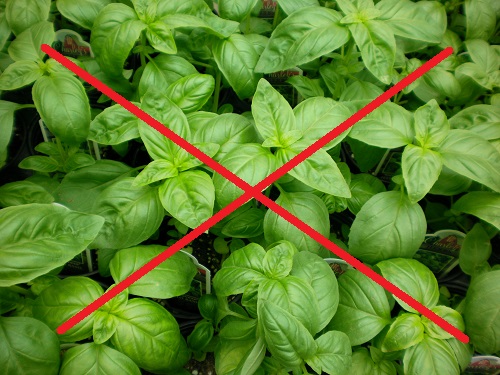EU Bans Imports Of Vegetables Grown In Laos
Source: Vientiane Times
The European Union (EU) has banned the import of four types of vegetables grown in Laos following its warning that the vegetables failed to meet safety standards, according to the Ministry of Agriculture and Forestry.
Following the ban that was imposed earlier this year, the ministry has instructed its provincial departments to work with the relevant sectors to improve the quality of the vegetables.
The plants in question are basil (Ocimum spp), Mexican coriander (Eryngium spp), peppers (Capsicum spp) and cha plu (Piper spp).
The EU has told Laos that the vegetables originating from the country were found to harbour diseases and chemical substances that exceeded the safety level. The EU has issued 130 warnings since 2012 followed by the ban.
In light of the problem, the ministry recently issued an order instructing provincial departments and relevant bodies to work together to improve the safety standards of the vegetables.
The ministry has told the relevant authorities to stop issuing quality guarantee certificates to companies who were warned by the EU. The suspension will be imposed until the quality of the vegetables is improved to meet the EU’s standards.
The authorities were told to make sure the quality guarantee certificates were not issued for those vegetables grown outside the country but were claimed to have originated in Laos to enjoy the export quota.
District agriculture and forestry offices and planting divisions have been told to disseminate the EU’s conditions and criteria to agribusiness operators and exporters so that exported farm products meet the criteria.
The ministry instructed its provincial departments to review the inspection systems of their officials and agribusiness operators towards improving inspection mechanisms and reporting the results to the ministry by next month.
Those found guilty of the loose inspection triggering the issue must be penalised in line with the relevant laws and regulations.
Officials were told to follow up the implementation and report the progress made in improving the quality of the vegetables to the EU’s authorities in charge of the issue.
The ministry stressed the need to address the issue and improve the quality of Lao farm products and inspection systems so that the agricultural commodities can be exported .
If not, the EU could widen the banned items which could affect the revenue generated from exports of farm products.
Officials said Laos has exported a number of farm products to many countries including the EU, generating large sums of money.
The export of bananas alone increased tenfold from more than 30.8 billion kip (US$3.8 million) in 2011-12 to more than 324.8 billion kip (US$40 million) in 2014-15, according to a report from the Ministry of Industry and Commerce.
The main markets for bananas grown in Laos are China and Thailand.

